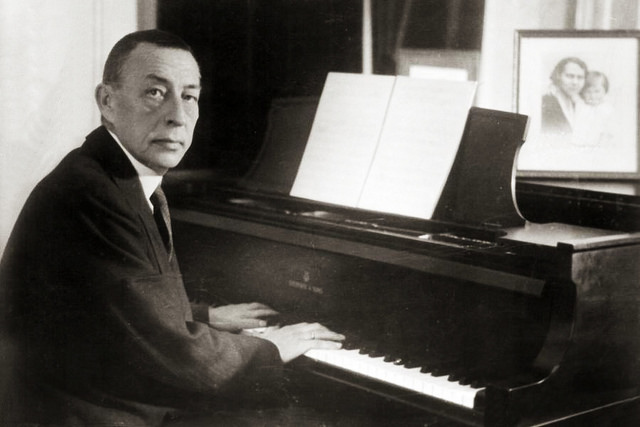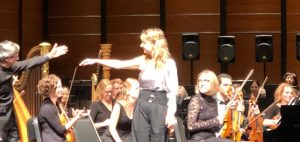
Interpreting Piano Concerto No. 1 at the Long Centre this weekend is the French-born pianist Lise de la Salle. In remarks before her performance with the Austin Symphony Orchestra, de la Salle expressed great enthusiasm for the concerto. “For me it is special – it is a unique Rachmaninoff, free of drama. It is infused with freshness and joy, with a touch of humour here and there. It doesn’t have the darkness and headiness that we see in his later symphonies.”
While still a teenager in 1891, Rachmaninoff wrote this symphony, but he changed most of the 3rd movement in 1917, which is the version we hear in Austin. “I’m not the only one who is glad he did revisit it,” said de la Salle. “It is a wonderful piece of music.”

The second movement opens with a languid piano solo performed with great sensitivity and restraint by de la Salle. Only a moment separates a langourous melody that ends the movement with the utterly capricious third movement. One young concert-goer described the effect to me as “very impassioned.” The pianist followed her well-deserved standing ovation with an encore of Debussy’s Girl with the Flaxen Hair.
Piano Concerto No. 1 was bookended at the Long Centre by the 9-minute-long Carnaval Overture by Alexander Glazunov, and the nearly hour-long Manfred Symphony by Tchaikovsky. The Overture is a fun piece that nearly gets lost in its own grandiosity. The Manfred, from 1885, is a musically and psychologically complex composition whose great depth was ably explored by maestro Peter Bay. Tchaikovsky very nearly transcends the symphonic form, which was barely able to contain the immensity of his musical thought on Lord Byron’s 1817 poem Manfred. Leonard Bernstein, who will be featured in the October performance of the Austin Symphony, disliked the Manfred so much he never recorded it. What one thinks of this vortex of consciousness is purely an entirely personal matter, but it is great the Austin Symphony is giving us all the chance to hear the Manfred, which is not on the roster of most symphony orchestras.
As the third and final in a series by the Austin Symphony on great Russian composers, this one lived up to expectations. There is one more opportunity to hear the concert: Tonight Sept. 15, 2018.